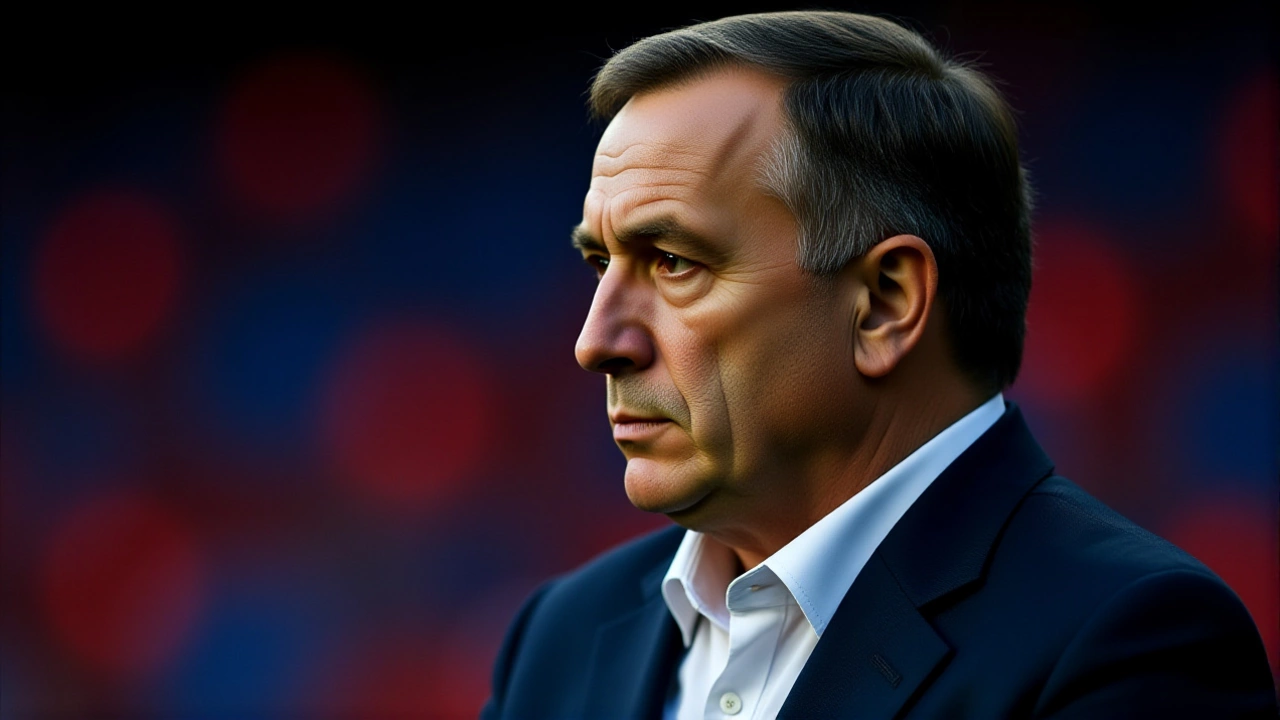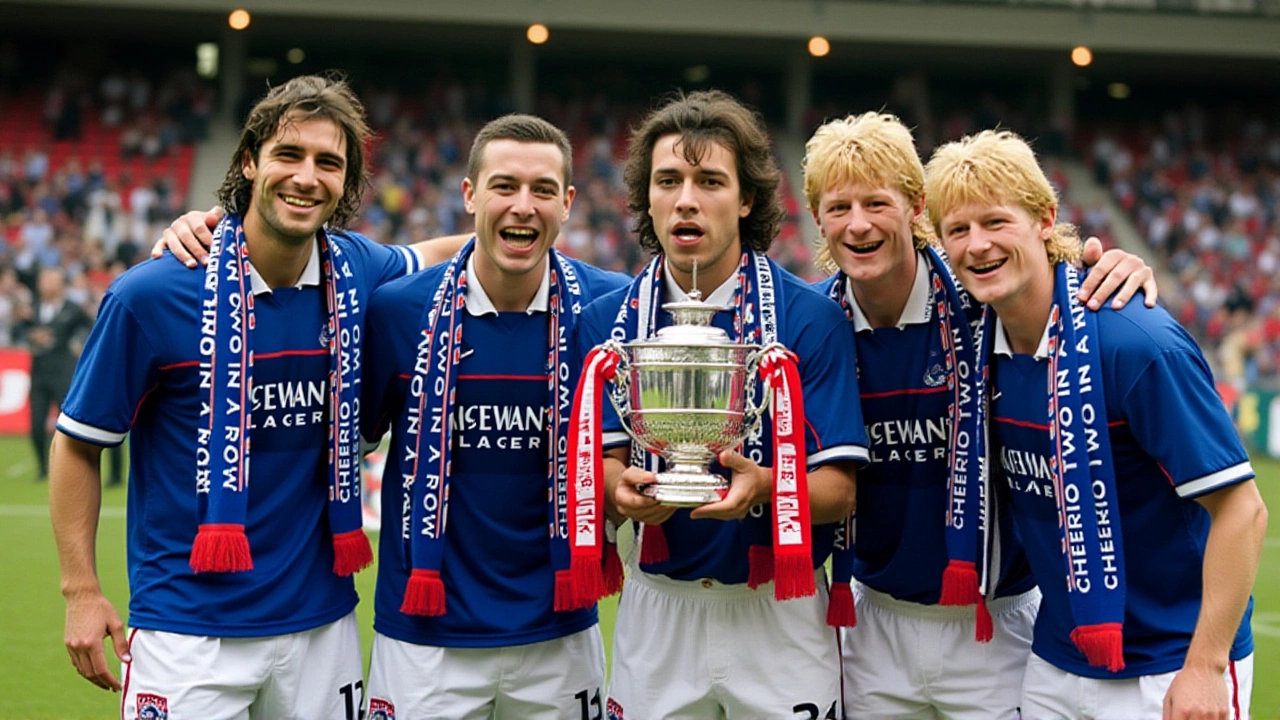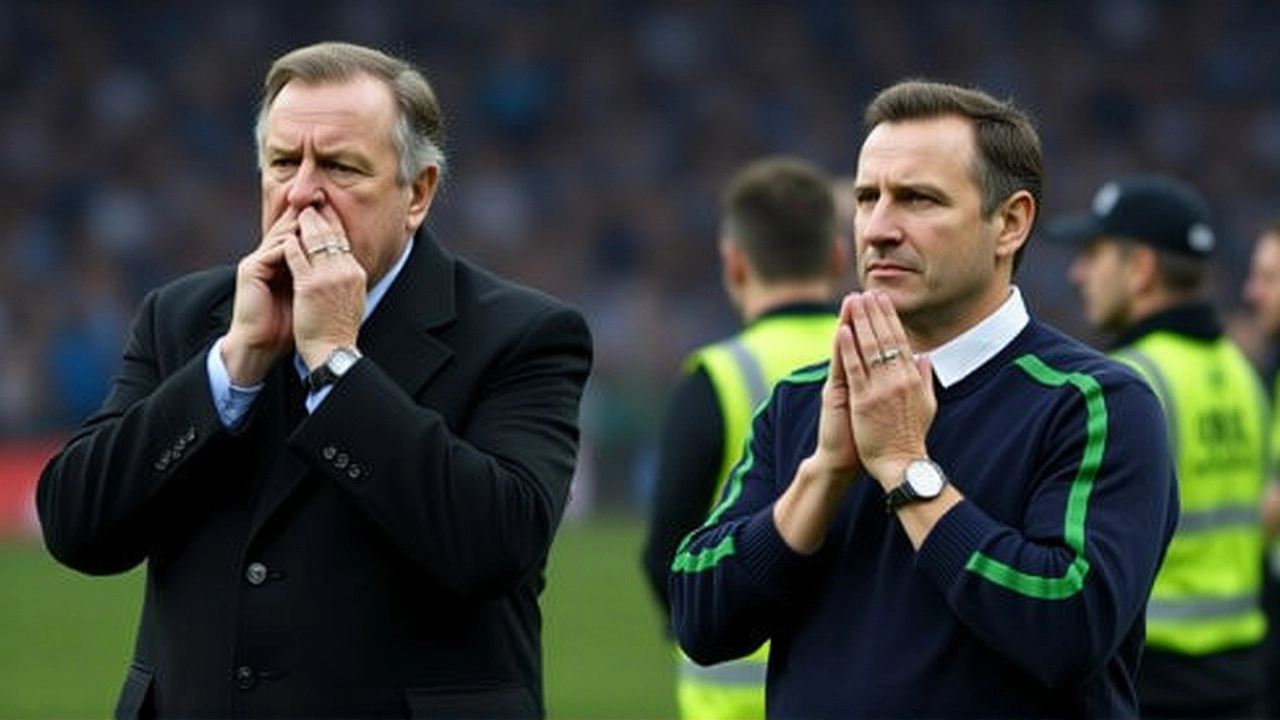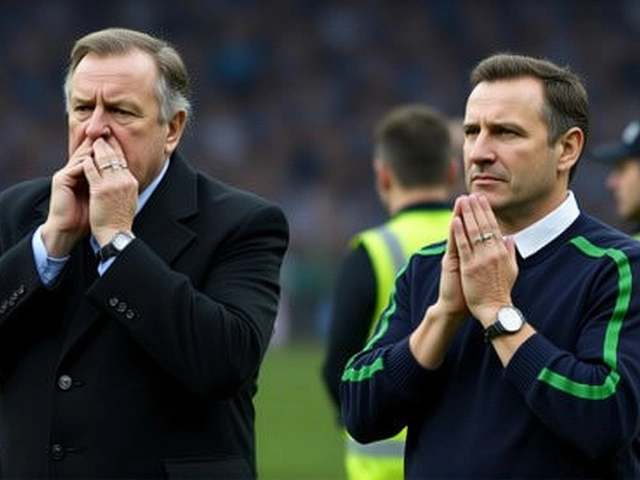When Dick Advocaat stepped down as manager of Rangers Football Club in December 2001, few could have guessed that his lavish transfer spending would one day be blamed for the club’s near-collapse. More than a decade later, in March 2012, as Rangers teetered on the edge of extinction after entering administration, Advocaat stood by his decisions. "I did not think the club would go bankrupt," he told The Telegraph. The trophies — two league titles, two Scottish Cups, and a League Cup — were worth it, he insisted. But the cost? £36 million. And the consequences? Catastrophic.
The Highs of Ibrox: When Dutch Magic Ruled Scotland
From 1998 to 2001, Advocaat transformed Rangers Football Club into a dominant force. Backed by chairman David Murray’s deep pockets, he spent aggressively in the transfer market. The summer of 1999 alone saw £22 million poured into new signings — a staggering sum for Scottish football at the time. Among them: Dutch international Giovanni van Bronckhorst, Dutch defender Arthur Numan, and Ukrainian winger Andrei Kanchelskis. The investment paid off immediately. In the 1999-2000 season, Rangers won the Scottish Premier League by a record 21-point margin and lifted the Scottish Cup. At the final in Glasgow, fans wore orange Netherlands jerseys in tribute, turning Ibrox Stadium into a sea of Dutch pride.The next season, they added the Scottish League Cup. Three major trophies in three years. It was the golden era of modern Rangers — and Advocaat was its architect. But the spending didn’t stop. In 2000, he broke the club’s transfer record with a £12 million deal for Norwegian striker Tore André Flo. The move was meant to seal dominance. Instead, it became a symbol of excess.
The Fall: When the Music Stopped
The 2000-01 season turned sour. Despite Flo’s arrival and another £12 million spent, Rangers won nothing. Celtic, under Martin O’Neill, swept the domestic treble. Tensions rose. Advocaat, frustrated, famously labeled some players "fat-necks" in press conferences — a phrase that stuck. The team’s form dipped. The fans’ patience wore thin. He resigned on December 12, 2001, after a 1-1 draw against Hibernian Football Club at Easter Road in Edinburgh. His final act as manager? A quiet, unremarkable match that foreshadowed the chaos to come.What followed was a slow-motion implosion. Rangers’ financial structure, already strained by debt and the high wage bill from Advocaat’s signings, unraveled. The club entered administration in February 2012 — 11 years after Advocaat left — and was forced to restart in the fourth tier of Scottish football. The £36 million he spent? Now seen as the spark that lit the fuse.

Advocaat’s Afterlife: From Ibrox to the Caribbean
Advocaat didn’t disappear. He took the reins of the Netherlands national football team for a third time, then managed South Korea, Russia, Belgium, and Iraq. In 2022, he accepted the job with the Curaçao national football team — a role that pays €8,000 a month. Barely a fraction of what he once earned. Yet he led them to qualification for the 2026 FIFA World CupGlobal, making him, at 77, the oldest manager ever to reach the tournament. "Age is just a number," he told Foot Africa. "I still see the game the same way. The tactics, the passion — it doesn’t change."
History Repeats? Rangers’ Spending Spree Returns
Fast forward to today. Rangers Football Club has returned to the top of Scottish football — but the financial model feels familiar. According to Inside Ibrox and Ibrox Noise, the club spent more in their most recent summer transfer window than at any time since Advocaat’s reign. Yet the results? No European runs. No domestic dominance. Just more debt, more pressure, and the same questions echoing through Ibrox’s stands: Was it worth it? Are we repeating the past?Advocaat’s legacy is a paradox. He delivered glory on the pitch, but his spending helped bury the club. Now, as Rangers once again chase trophies with deep pockets, the shadow of his tenure looms large. The difference? Today’s board knows the risks. But do they have the courage to stop before it’s too late?
Frequently Asked Questions
How did Dick Advocaat’s spending compare to other Rangers managers?
Advocaat’s net spending of £22 million in a single summer (1999) dwarfed any previous outlay at Rangers. Even in the club’s 1970s golden age, transfers rarely exceeded £1 million. His £12 million signing of Tore André Flo was a club record at the time — a figure that stood for nearly a decade. Today’s spending, while comparable in nominal terms, is inflated by inflation and higher wages, making direct comparisons difficult.
Why didn’t Rangers’ financial troubles surface sooner after Advocaat left?
Advocaat’s spending was masked by David Murray’s personal wealth and the club’s strong commercial revenue. But after Murray’s financial empire began to crumble in the mid-2000s, the wage bill and debt from those signings became unsustainable. The club’s reliance on owner funding — not sustainable revenue — meant the collapse was inevitable once external support vanished.
What happened to the players Advocaat signed?
Most of Advocaat’s key signings left before the collapse. Van Bronckhorst moved to Barcelona, Kanchelskis to Manchester City, and Numan retired in 2002. Only Joachim Bjorklund, the Swedish defender, generated meaningful transfer income — £1.2 million — making him the only profitable exit. The rest were either sold for minimal fees or released, leaving Rangers with little financial recovery.
Is Dick Advocaat still involved in football?
Yes. As of 2025, Advocaat manages the Curaçao national football team, leading them to their first-ever World Cup qualification for 2026. He earns €8,000 monthly — a far cry from his Premier League days — but he’s focused on legacy, not money. At 77, he’ll become the oldest manager in World Cup history.
Could Rangers’ current spending lead to another collapse?
Experts warn the risk is real. While Rangers’ revenue streams are stronger today, the club still operates with significant debt. Without a sustainable financial model — and with fan ownership still limited — history could repeat. The difference now? Fans are watching. And they remember 2012.
What’s the legacy of Advocaat’s time at Rangers?
It’s a duality. On one hand, he brought the club its most dominant period in decades, blending Dutch tactical discipline with Scottish passion. On the other, his spending became a blueprint for financial overreach. His trophies are celebrated. His balance sheet is a cautionary tale. For Rangers, he remains both hero and warning.

